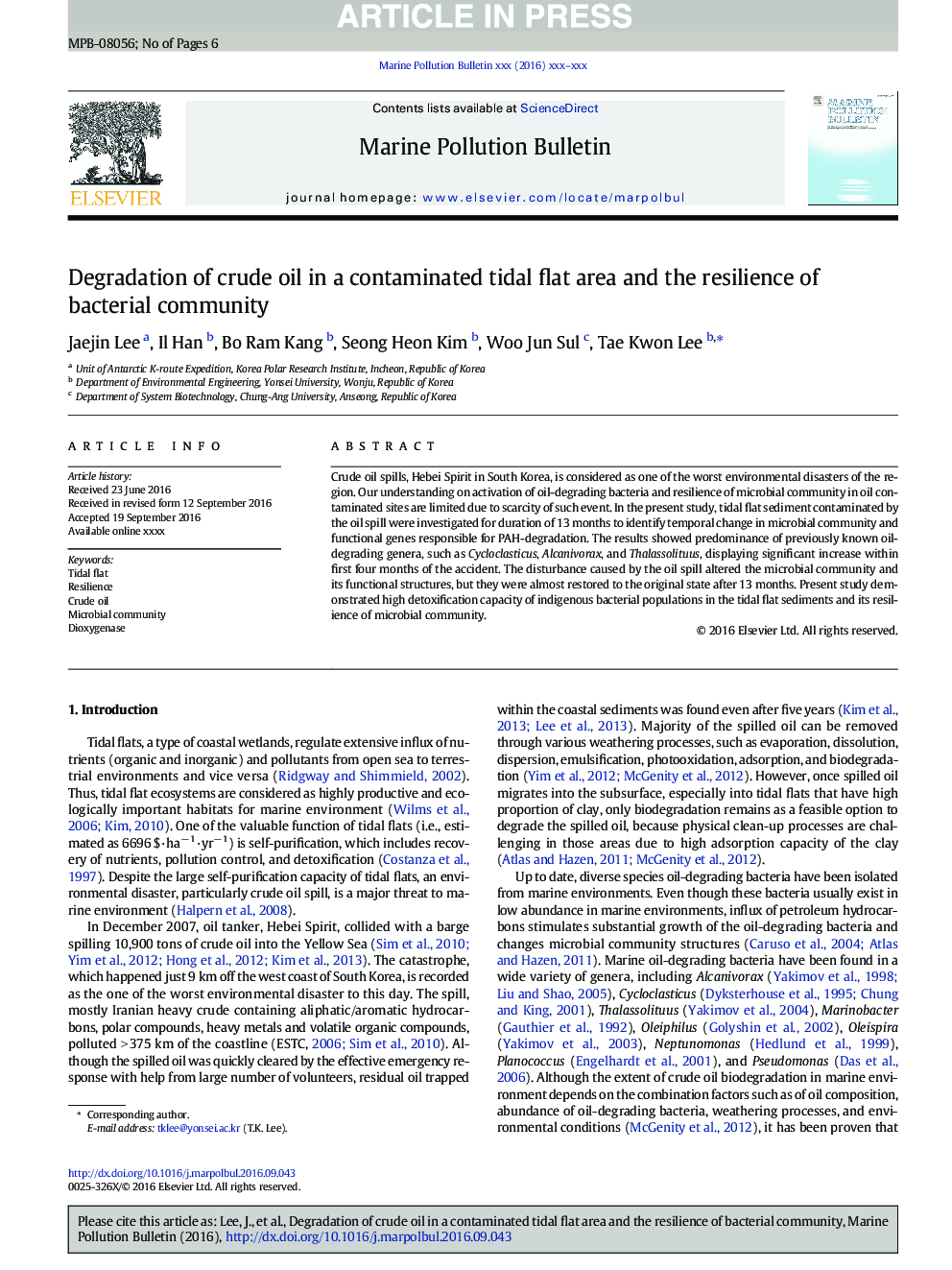| Article ID | Journal | Published Year | Pages | File Type |
|---|---|---|---|---|
| 5757794 | Marine Pollution Bulletin | 2017 | 6 Pages |
Abstract
Crude oil spills, Hebei Spirit in South Korea, is considered as one of the worst environmental disasters of the region. Our understanding on activation of oil-degrading bacteria and resilience of microbial community in oil contaminated sites are limited due to scarcity of such event. In the present study, tidal flat sediment contaminated by the oil spill were investigated for duration of 13Â months to identify temporal change in microbial community and functional genes responsible for PAH-degradation. The results showed predominance of previously known oil-degrading genera, such as Cycloclasticus, Alcanivorax, and Thalassolituus, displaying significant increase within first four months of the accident. The disturbance caused by the oil spill altered the microbial community and its functional structures, but they were almost restored to the original state after 13Â months. Present study demonstrated high detoxification capacity of indigenous bacterial populations in the tidal flat sediments and its resilience of microbial community.
Related Topics
Physical Sciences and Engineering
Earth and Planetary Sciences
Oceanography
Authors
Jaejin Lee, Il Han, Bo Ram Kang, Seong Heon Kim, Woo Jun Sul, Tae Kwon Lee,
